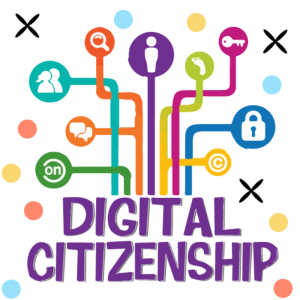Responsible use of technology and digital tools is often referred to as digital citizenship (GoGuardian, 2023). Anyone who interacts with various forms of technology has rights and protections much like a community member within a city. A digital citizen has expectations of how to properly use and community when using these tools. GoGuardian (2020) writes about these expectations in an article concerning digital citizenship. They discuss topics such as sharing misleading information, the need for carefully valid sources, and how to avoid cyberbullying. At any age, they encourage users to conduct themselves in a helpful and positive manner.
The International Society for Technology in Education (ISTE) provides standards that teachers can use as guidance when dealing with technology and its integration (ISTE, 2023). Regarding digital citizenship, they urge educators to create a learning environment that encourages curiosity yet analyzes online resources and fosters the building of skills such as digital literacy and media fluency (ISTE, 2023).
Society needs people who understand how to responsibly use technology and schools are a vital part of educating young adults and children with the skills they need to do so (GoGuardian, 2023). They grow up knowing how to prevent cyberbullying and remain safe as they navigate the internet. Teaching digital citizenship in schools is a key factor in inspiring the next generation to not only avoid possible dangers but thrive and succeed in a digital world.
References
GoGuardian. (2023). Everything You Need to Know About Digital Citizenship. GoGuardian. https://www.goguardian.com/glossary/digital-citizenship
International Society for Technology in Education (ISTE). (2023). ISTE Standards: For Educators. International Society for Technology in Education. https://iste.org/standards/educators

